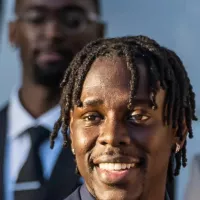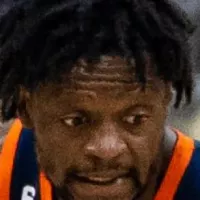"Gabon, officially known as the Gabonese Republic, is a Central African country situated on the equator along the Atlantic coast. With a land area of 270,000 square kilometers (100,000 sq mi), it is bordered by Equatorial Guinea to the northwest, Cameroon to the north, the Republic of the Congo to the east and south, and the Gulf of Guinea to the west. Gabon has a population of 2.3 million. Its diverse geography encompasses coastal plains, mountains, and savannas in the east. Libreville serves as the country's capital and largest city.
1900: Start of Population Decline
Historical and environmental factors led to a decline in Gabon's population between 1900 and 1940.
1910: Incorporation into French Equatorial Africa
Gabon became a part of French Equatorial Africa in 1910, a federation of French colonies that would last for several decades.
1913: Establishment of Albert Schweitzer Hospital
Albert Schweitzer founded a private hospital in Lambaréné, Gabon, in 1913.
1940: End of Population Decline
By 1940, the population decline in Gabon, which began in 1900, had come to an end.
November 1958: Establishment of Autonomous Republic within the French Community
In November 1958, Gabon achieved a significant milestone by becoming an autonomous republic within the French Community, marking a crucial step towards its eventual full independence.
August 1960: Full Independence
Gabon achieved full independence in August 1960, transitioning from an autonomous republic within the French Community to a fully sovereign nation.
1960: Independence from France
Gabon gained its independence from France in 1960 after being a French territory for many years.
1960: Total Fertility Rate in Gabon
The total fertility rate in Gabon was 5.8 children per mother during their childbearing years in 1960.
1961: Léon M'ba Elected as First President
Léon M'ba was elected as Gabon's first president in 1961. His tenure was marked by a gradual consolidation of power, suppression of dissent, and a shift towards a more presidential system of governance.
1961: Establishment of Presidential Republic
The 1961 constitution established Gabon as a presidential republic, outlining the structure and powers of the government, including the presidency, legislature, and judiciary.
1962: Football in Gabon
The Gabonese national football team has represented the nation in football matches since 1962.
January 1964: Attempted Coup and French Intervention
In January 1964, an army coup attempted to remove President Léon M'ba from power, aiming to restore parliamentary democracy. However, French paratroopers intervened within 24 hours, reinstating M'ba and suppressing the opposition, leading to protests and riots.
1967: Omar Bongo's Rise to Power and the Bongo Dynasty
Omar Bongo assumed the presidency in 1967, marking the beginning of a dynasty that would shape Gabon's political landscape for decades. His rule was characterized by a system of patronage known as Françafrique, which helped to solidify his family's grip on power.
1967: Bongo's Succession to Presidency
Upon the death of President Léon M'ba in 1967, Omar Bongo, who was serving as vice president at the time, assumed the presidency, marking the beginning of his decades-long rule over Gabon.
March 1968: Establishment of the Parti Démocratique Gabonais (PDG)
In March 1968, President Bongo dissolved the existing BDG party and established the Parti Démocratique Gabonais (PDG) as the country's sole political party, aiming to create a unified national movement and consolidate his power.
1971: Discovery of the Grondin Oil Field
The Grondin Oil Field was discovered in 1971, located 40 kilometers offshore in 50 meters of water depth.
1972: Olympics in Gabon
Gabon began participating in the Summer Olympics in 1972 and has sent athletes to most Summer Games since then.
February 1975: Bongo's Re-election and Abolition of Vice Presidency
Omar Bongo secured his re-election as president in February 1975. In a significant move, the position of vice president was abolished in April 1975 and replaced with the role of prime minister, who did not hold the right of automatic succession, further centralizing power in the presidency.
April 1975: Abolition of Vice Presidency
In April 1975, the position of vice president was abolished and replaced with the role of prime minister, who did not hold the right of automatic succession, further centralizing power in the presidency.
1975: First Revision of the Constitution
The Gabonese constitution, originally adopted in 1961, underwent its first revision in 1975, reflecting the evolving political landscape and priorities of the nation.
December 1979: Bongo's Re-election for a Seven-Year Term
President Bongo was re-elected for another seven-year term in December 1979, further solidifying his long-standing rule over Gabon.
1981: Broadcasting in Gabon
The year 1981 marked the launch of Africa No. 1, a commercial radio station in Gabon. This station was a collaborative effort, receiving support from both the French and Gabonese governments, as well as private European media entities.
1983: Gorilla Population Estimate in Gabon
In 1983, the gorilla population in Gabon was estimated to be between 28,000 and 42,000 individuals.
1985: Expansion of Healthcare Infrastructure in Gabon
By 1985, Gabon had 28 hospitals, 87 medical centers, and 312 infirmaries and dispensaries.
November 1986: Bongo's Re-election for Another Seven-Year Term
President Omar Bongo secured re-election for another seven-year term in November 1986, extending his hold on power and continuing his extended tenure as Gabon's leader.
April 1990: Continued Opposition to PDG and Coup Attempts
Despite the political reforms initiated in April 1990, opposition to the ruling PDG party persisted, and in September 1990, two attempted coups were uncovered and thwarted.
April 1990: National Political Conference and Political Reforms
In response to growing social unrest and demands for political change, a national political conference took place in March-April 1990. This pivotal event led to significant political reforms, including the introduction of a multi-party system and measures aimed at greater political openness.
April 1990: Approval of Political Reforms
The national political conference concluded in April 1990 with the approval of substantial political reforms. These included the creation of a national Senate, the decentralization of budgetary processes, the guarantee of freedom of assembly and press, and the removal of exit visa requirements.
May 1990: Drafting of a Transitional Constitution
In May 1990, Gabon embarked on a significant political transition, drafting a new constitution that aimed to usher in democratic reforms and address concerns raised during the national political conference held earlier that year.
September 1990: Discovery of Coup Attempts
In September 1990, two coup attempts against the government were uncovered and successfully neutralized.
October 1990: First Multiparty National Assembly Elections in Three Decades
Gabon held its first multiparty National Assembly elections in nearly 30 years in September-October 1990. The ruling PDG emerged victorious, securing a majority in the assembly.
1990: Introduction of a Bicameral Legislature
A significant political reform occurred in 1990 with the introduction of a bicameral legislature in Gabon. This move aimed to create a more balanced and representative legislative branch by establishing a Senate alongside the existing National Assembly.
January 1991: Legalization of Opposition Parties
A landmark decision in January 1991 saw the Gabonese Assembly unanimously passing a law to legalize opposition parties, paving the way for a multi-party political system and greater democratic participation.
March 1991: Adoption of a New Constitution
After a period of drafting and revisions, Gabon's new constitution, incorporating Western-style rights and democratic principles, was unanimously adopted in March 1991, marking a pivotal moment in the nation's political journey.
March 1991: New Constitution Comes into Force
After a period of review and refinement, the new constitution, drafted in the wake of the 1990 political reforms, came into effect in March 1991, ushering in a new era of multiparty politics in Gabon.
1991: Rewriting of the Constitution
The year 1991 marked a pivotal point in Gabon's political history with the complete rewriting of its constitution. This major revision aimed to democratize the country's political system, enshrine fundamental rights, and establish new institutions.
December 1993: Omar Bongo's Re-election and Political Unrest
President Omar Bongo was re-elected in December 1993 with 51% of the vote, a result disputed by opposition candidates who alleged irregularities. This contested election led to civil unrest and violent repression, prompting negotiations between the government and opposition groups.
1993: Disputed Election and Unrest
Following Omar Bongo's re-election in 1993, an election marred by controversy and low voter turnout, Gabon was plunged into social and political turmoil, prompting calls for dialogue and reform.
November 1994: Paris Accords and Government of National Unity
Following the disputed 1993 election and subsequent unrest, the government and opposition factions reached an agreement known as the Paris Accords in November 1994. This agreement paved the way for the formation of a government of national unity, which included members of the opposition.
1994: Paris Conference and Accords
In 1994, in response to the unrest sparked by the disputed 1993 elections, Gabon held the Paris Conference, leading to the signing of the Paris Accords, which aimed to establish a framework for future elections and political stability.
1994: CFA Franc Devaluation
The CFA franc was devalued in 1994, contributing to debt problems in Gabon.
1995: Gabon Withdraws from OPEC
In 1995, Gabon withdrew from the Organization of the Petroleum Exporting Countries (OPEC).
1996: Legislative Elections
Legislative elections were held in 1996, marking a return to partisan politics following the collapse of the government of national unity. The ruling PDG party emerged victorious in these elections.
1996: Delayed Local and Legislative Elections
Originally scheduled earlier, local and legislative elections in Gabon were delayed until 1996-1997, reflecting the complexities of implementing the Paris Accords and ensuring a more inclusive and transparent electoral process.
1997: Operationalization of the Senate
Following its creation in the 1990-1991 constitutional revision, the Senate, Gabon's upper house of parliament, became operational after the 1997 local elections, marking a significant step in the country's political evolution towards a bicameral system.
1997: Peak Oil Production in Gabon
Gabon's oil production reached its highest point in 1997, at 370,000 barrels per day.
1997: Constitutional Amendments and Expansion of Presidential Powers
Significant constitutional amendments were adopted in 1997, introducing the Senate, creating the position of Vice President, and extending the presidential term to seven years, all of which shaped the balance of power and future political landscape of Gabon.
1997: Legislative and Municipal Elections
The legislative and municipal elections of 1997 witnessed a resurgence of partisan politics, with the ruling PDG winning the legislative elections while some opposition candidates, notably in Libreville, secured mayoral positions in the local elections.
December 1998: Bongo's Re-election Amidst Controversy
President Omar Bongo won re-election in December 1998, facing a divided opposition. However, the election was marred by allegations of fraud from some of Bongo's opponents, though international observers deemed the results as generally representative despite acknowledging irregularities.
1998: Maternal Mortality Rate in Gabon
The maternal mortality rate in Gabon was 520 per 100,000 live births in 1998.
December 1999: Peace Accord in the Republic of the Congo
In December 1999, a peace accord was signed in the Republic of the Congo (Brazzaville) between the government and most leaders of an armed rebellion, thanks to the mediation efforts of President Bongo.
2000: Decline in Total Fertility Rate
By 2000, the total fertility rate in Gabon had decreased to 4.2 children per mother during their childbearing years.
2000: Access to Safe Drinking Water and Sanitation in Gabon
In 2000, 70% of Gabon's population had access to safe drinking water, and 21% had adequate sanitation.
2000: Education in Gabon
In 2000, Gabon had a net primary enrollment rate of 78%, reflecting the number of children of official primary school age who were enrolled in primary school.
2001: Education in Gabon
By 2001, despite the challenges within the education system, approximately 69% of Gabonese children who began primary school were anticipated to complete it and reach grade 5.
2001: Legislative Elections and Opposition Boycott
Legislative elections were held in 2001 but were boycotted by several smaller opposition parties. The elections were criticized for administrative shortcomings and resulted in a National Assembly dominated by the ruling PDG and its allies.
2002: Media in Gabon
By 2002, Gabon-Matin, the daily newspaper published by the Gabonese Press Agency, had an average daily circulation of 18,000.
2002: Expansion of Gabon's National Park System
In 2002, President Omar Bongo Ondimba designated approximately 10% of Gabon's territory to be included in its national park system, bringing the total number of parks to 13.
2002: Legislative Elections and Opposition Boycott
Legislative elections were held in 2002 but were boycotted by several smaller opposition parties. The elections were criticized for administrative shortcomings and resulted in a National Assembly dominated by the ruling PDG and its allies.
2002: Overall Mortality Rate in Gabon
The overall mortality rate in Gabon was estimated to be 17.6 per 1,000 inhabitants in 2002.
2003: Media in Gabon
In 2003, Gabon had a media penetration rate of approximately 488 radios and 308 television sets for every 1,000 people. Access to the internet was also present, with 26 out of every 1,000 people having internet access.
2003: Constitutional Amendment and Term Limit Removal
In 2003, a significant amendment to the Gabonese constitution removed presidential term limits, allowing for extended periods in office. This change sparked debate about its implications for democratic principles and potential for power consolidation.
2003: Chimpanzee Population Estimate in Gabon
In 2003, the chimpanzee population in Gabon was estimated to be between 27,000 and 64,000 individuals.
2003: AIDS-Related Deaths in Gabon
In 2003, there were approximately 3,000 deaths from AIDS in Gabon.
2004: Physician Density and Healthcare Access in Gabon
In 2004, Gabon had an estimated 29 physicians per 100,000 people, and approximately 90% of the population had access to healthcare services.
2004: Media in Gabon
In 2004, Gabon's media landscape consisted of two government-operated radio stations alongside seven privately owned ones. The television sector had a similar composition, with two government stations and four private ones.
September 2005: Gabon Completes Stand-By Arrangement with IMF
In September 2005, Gabon successfully completed a 15-month Stand-By Arrangement with the International Monetary Fund (IMF).
November 2005: Bongo's Sixth Term Election
President Omar Bongo secured his sixth term in office in November 2005. However, the election was met with accusations of irregularities from opposition figures, and sporadic incidents of violence erupted following the announcement of Bongo's victory.
2005: Infant Mortality Rate and Life Expectancy in Gabon
In 2005, Gabon had an infant mortality rate of 55.35 per 1,000 live births, and the life expectancy was 55.02 years.
December 2006: National Assembly Elections and Constitutional Court Rulings
National Assembly elections took place in December 2006. The elections were marked by some controversies, with the Constitutional Court overturning results in certain constituencies due to voting irregularities. Subsequent run-off elections in 2007 ultimately resulted in a National Assembly controlled by the ruling PDG.
May 2007: New Stand-By Arrangement with IMF
A new three-year Stand-By Arrangement with the International Monetary Fund (IMF) was approved for Gabon in May 2007.
2007: Run-off Elections and PDG Control
Following the contested December 2006 elections and the Constitutional Court's rulings, run-off elections were held in 2007. These elections solidified the ruling PDG's control over the National Assembly.
2008: National Geographic Expedition to Gabon's Caves
In the summer of 2008, a National Geographic Expedition visited some of the hundreds of caves located in Gabon's dolomite and limestone karst areas to document them.
June 2009: Death of Omar Bongo and Political Transition
President Omar Bongo passed away in June 2009 after a prolonged period of illness. His death, while in a Spanish hospital, marked the end of an era and triggered a period of political transition in Gabon. In accordance with the amended constitution, Rose Francine Rogombé, the President of the Senate, assumed the role of Interim President on June 10, 2009, paving the way for new presidential elections.
August 2009: First Presidential Election without Omar Bongo
August 2009 marked a historic moment for Gabon as it held its first presidential election without Omar Bongo on the ballot. A diverse field of 18 candidates competed for the presidency, including Ali Bongo, the son of the late Omar Bongo and leader of the ruling party. The elections drew significant attention both domestically and from the international community, eager to observe the unfolding political transition in the post-Bongo era.
October 2009: Disputed Election and Unrest
Following Ali Bongo's contested election win in October 2009, protests erupted, particularly in Port-Gentil, fueled by claims of electoral fraud. The unrest, which resulted in four fatalities and extensive property damage, including attacks on the French Consulate and a local prison, led to a three-month curfew and deployment of security forces.
October 2009: Government Streamlining and Anti-Corruption Efforts
In October 2009, President Ali Bongo Ondimba initiated a series of reforms to streamline the government, including eliminating ministerial positions, abolishing the Vice Presidency, and restructuring ministries, aiming to tackle corruption and improve efficiency.
November 2009: Launch of "Gabon Emergent" Vision
President Bongo Ondimba unveiled "Gabon Emergent," an ambitious modernization program, in November 2009. Focused on economic diversification, combating corruption, and workforce modernization, the program introduced initiatives like banning raw timber exports, conducting a government census, and establishing a national oil company.
2009: Gabon Unable to Meet Economic Goals
Due to the financial crisis and social developments following the death of President Omar Bongo and the subsequent elections, Gabon was unable to meet its economic goals under the Stand-By Arrangement in 2009.
2009: HIV/AIDS Prevalence and Mortality in Gabon
In 2009, the HIV/AIDS prevalence in Gabon was estimated to be 5.2% of the adult population (ages 15-49). Approximately 46,000 people were living with HIV/AIDS, and there were an estimated 2,400 deaths from AIDS.
January 2010: Gabon Elected to UN Security Council
Gabon was elected to a non-permanent seat on the United Nations Security Council for a term starting in January 2010 and ending in December 2011.
March 2010: Gabon Holds UN Security Council Presidency
Gabon held the rotating presidency of the United Nations Security Council in March 2010.
June 2010: Partial Legislative By-election
In June 2010, a partial legislative by-election saw the emergence of the Union Nationale (UN) coalition, largely composed of former PDG members. Both the PDG and UN claimed victory in the contest for the five seats, highlighting the lingering political tensions following the presidential transition.
January 2011: Opposition Leader Claims Presidency, Government Responds
In January 2011, opposition leader André Mba Obame declared himself president, challenging the legitimacy of President Ondimba. This act led to the government dissolving Mba Obame's party and drew condemnation from international bodies like the African Union and the United Nations, who reaffirmed Ondimba's legitimacy.
December 2011: End of Gabon's Term on UN Security Council
Gabon's term as a non-permanent member of the United Nations Security Council ended in December 2011.
2011: Football in Gabon
Gabon's Under-23 football team achieved a significant victory in 2011 by winning the CAF U-23 Championship. This victory secured their qualification for the 2012 London Olympics.
2012: Olympics in Gabon
Anthony Obame, a Gabonese athlete, earned a silver medal in taekwondo at the 2012 Olympic Games in London.
2013: Census Reveals Language Use in Gabon
The 2013 census in Gabon found that 63.7% of the population could speak a Gabonese language. This proportion was higher in rural areas (86.3%) than in urban areas (60.5%).
2015: Religion in Gabon Data
The Association of Religion Data Archives (ARDA) collected data on religion in Gabon in 2015.
2015: Basketball in Gabon
The Gabonese national basketball team, known as Les Panthères, participated in the AfroBasket 2015 and secured an 8th place finish.
2016: Gabon Rejoins OPEC
Gabon rejoined the Organization of the Petroleum Exporting Countries (OPEC) in 2016.
2016: Disputed Election and Violent Crackdown
The 2016 presidential election was marred by controversy, with close results and accusations of irregularities. Protests met with a harsh crackdown, leading to fatalities and arrests. International observers criticized the election's conduct, and the European Parliament called for an investigation into human rights violations.
2017: Football in Gabon
Gabon was given the honor of solely hosting the Africa Cup of Nations tournament in 2017.
2018: Gabon's High Forest Landscape Integrity Index Score
Gabon received a mean score of 9.07 out of 10 on the 2018 Forest Landscape Integrity Index, ranking 9th globally out of 172 countries.
January 2019: Failed Coup Attempt
A group of soldiers attempted a coup against President Ali Bongo in January 2019. Though the coup ultimately failed, it underscored the persistent threats to Gabon's political stability.
2020: Regional Trend of Military Interventions
The 2023 coup in Gabon marked the eighth instance of military intervention in the region since 2020, raising concerns about a worrying trend of democratic backsliding and instability in the area.
June 2021: Pioneering Emissions Reduction Payments
Gabon made history in June 2021 by becoming the first nation to receive payments for successfully reducing emissions from deforestation and forest degradation.
June 2022: Joining the Commonwealth
In a significant move signaling its dedication to multilateral cooperation and engagement, Gabon, alongside Togo, joined the Commonwealth of Nations in June 2022.
2022: Gabon Joins the Commonwealth
Gabon joined the Commonwealth of Nations in 2022.
August 2023: Military Coup and Election Cancellation
Following Ali Bongo's declared victory for a third term in the August 2023 general election, military officers seized power, overturning the election results and dissolving state institutions, including the Judiciary, Parliament, and the constitutional assembly.
August 2023: Military Coup and Removal of Ali Bongo Ondimba
Shortly after the disputed August 2023 presidential election, a group of military officers staged a coup, declaring they had overthrown the government and deposed President Ali Bongo Ondimba, who had been declared the winner of a controversial third term. General Brice Oligui Nguema was appointed as the transitional leader.
September 2023: Appointment of Interim President
On September 4, 2023, General Brice Oligui Nguema, who led the August 2023 coup, was inaugurated as the interim president of Gabon, ending the Bongo family's 55-year grip on power.
2023: Current Crude Oil Production in Gabon
As of 2023, Gabon produces approximately 200,000 barrels of crude oil per day.
2023: Coup d'état and Removal of the PDG
In 2023, a coup d'état took place in Gabon, leading to the removal of the Gabonese Democratic Party (PDG) from power after a long period of dominance in the country's political landscape.
2025: Projected Depletion of Gabon's Oil Reserves
According to some estimates, Gabon's oil reserves are projected to be depleted by 2025.
Mentioned in this timeline

Basketball is a team sport played on a rectangular court...
Africa is the second-largest and second-most populous continent comprising of...

Football is a family of team sports primarily involving kicking...
France officially the French Republic is primarily located in Western...
The modern Olympic Games are a leading international sporting event...
The Organization of the Petroleum Exporting Countries OPEC is a...
Trending

54 minutes ago Lakers Seek to Unlock Ayton's Greatness While Hayes Shines, Exposing Unwanted Truth.

54 minutes ago Jrue Holiday NBA DFS picks, lineups, and player prop bets for February 24.

54 minutes ago Julius Randle's Injury Update: Chris Finch Comments, Randle Scores 18 in Loss
54 minutes ago Jaden McDaniels excels as scorer, boosting Timberwolves with underrated skills this year.

55 minutes ago NBA Southeast Notes Discuss Trades, Desmond Bane's Performance, and Wendell Carter Jr.

2 hours ago Space Force Upgrades, Battle Management, and Role in Raids Spark Resource Push
Popular

Jesse Jackson is an American civil rights activist politician and...

Susan Rice is an American diplomat and public official prominent...

Barack Obama the th U S President - was the...

Michael Joseph Jackson the King of Pop was a highly...

Bernie Sanders is a prominent American politician currently serving as...

XXXTentacion born Jahseh Dwayne Ricardo Onfroy was a controversial yet...